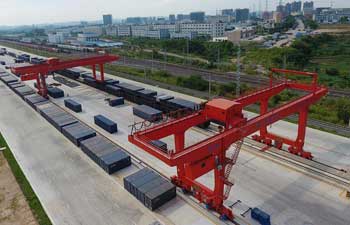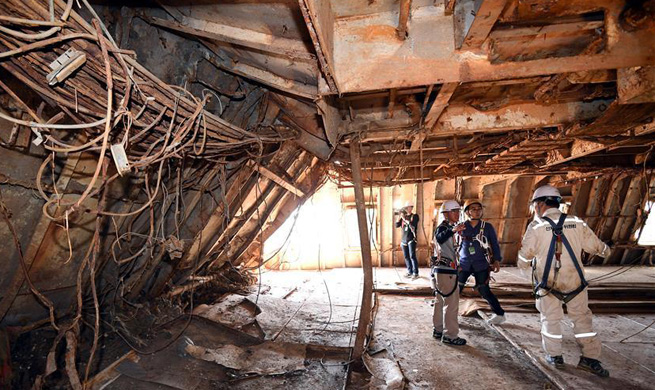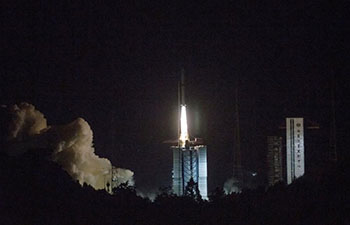GENEVA, May 24 (Xinhua) -- Hydraulic fracturing, also known as "fracking", should be approached with caution by countries seeking to increase access to energy, a new UN report on shale gas said Thursday.
The report, discussing the pros and cons of "fracking" -- the divisive method of extracting natural gas from shale formations, was released by the United Nations Conference on Trade and Development (UNCTAD) here.
It reviews the history of shale gas extraction in the United States and other national examples to assess its suitability with commitments to the Paris climate agreement in the context of pressing energy needs.
"Climate change means that all countries must, as a matter of strategic urgency, move away from burning fossil fuels, including shale gas," UNCTAD Secretary-General Mukhisa Kituyi said in the report.
"But given that energy is needed to end poverty and boost development, countries with potential shale gas resources should understand the pros and cons when they take policy decisions about the short-term energy mix."
The report aims to "offer a dispassionate perspective" on shale gas and hydraulic fracturing for policymakers and other stakeholders.
It said that investments in the shale gas sector should not be made at the expense of the deployment of renewable energies and energy efficiency strategies.
It also noted that gaps in local geological and hydrological knowledge, the lack of a "social license to operate" as well as inadequate regulatory environments may constitute major obstacles to the use of hydraulic fracturing as a method of extracting shale gas.
"Natural gas should contribute to fostering a smooth transition from the current economic model, mainly based on fossil fuels, to achieving a low-carbon economy, with the objective of meeting the Sustainable Development Goal (SDG) 7 by 2030," the report said.
The report says that natural gas, including shale gas, offers several pros and cons as a so-called "bridge" fuel between large carbon dioxide (CO2) contributors like coal and oil, and renewable energy sources.
Among the advantages most experts agree are that natural gas emits about 40 percent less CO2 per unit of energy produced than coal, and that it can be stored and used on demand to meet variable energy needs more efficiently than energy generated from renewable sources such as wind.
"Concern has been expressed with regard to the large quantities of water used by hydraulic fracturing, as well as the potential risks generated by shale gas operations, on the quality of such resources through groundwater or surface water contamination," the report said.

















